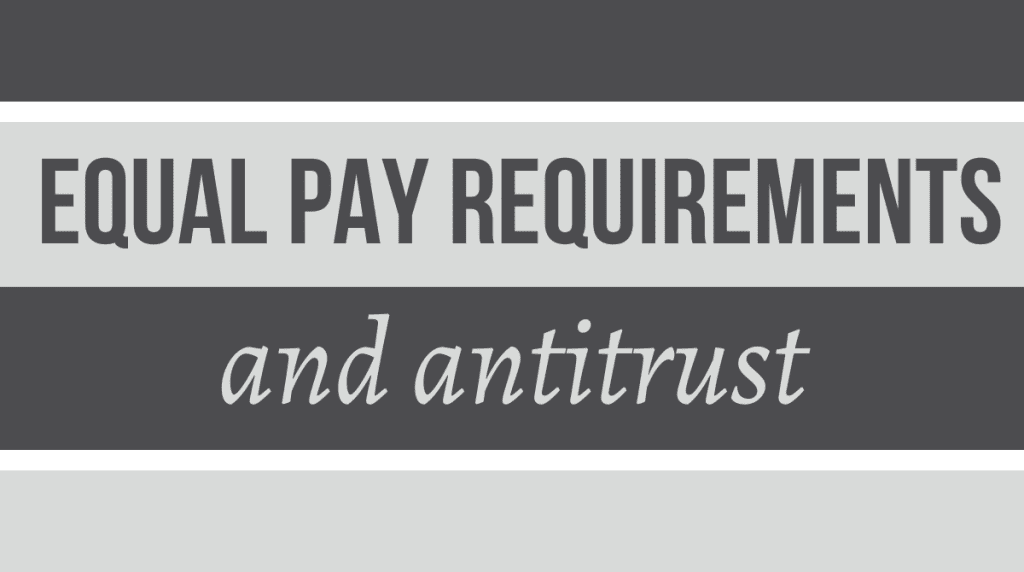
Posted April 13th, 2023 in Legal Insights with Tags The Equal Pay Advisor
Equal Pay Requirements and Antitrust
Employers concerned with state and federal equal pay requirements are now facing a new potential concern: antitrust issues. The Biden administration’s Department of Justice has announced an intent to prosecute employers who share compensation data that implicates antitrust concerns. Employers who consider sharing employee compensation data should be cautious about doing so and carefully consider whether sharing the data creates potential exposure to antitrust concerns.
Most antitrust cases arise out of the consumer context, and contend that a group of sellers conspire to fix the price of a product at an artificially high level. The Sherman Act prohibits collusion or other activity to fix prices, allows consumers to bring civil claims based on price fixing, and also provides for criminal liability. Less well known is the fact that the Sherman Act also prohibits collusion or other actions to fix wages for employees. Employers who work with other employers in collusion to fix wages also violate the Sherman Act, allowing employees to bring civil claims and creating potential criminal liability.
The Biden administration’s Justice Department has made such claims a priority and has sought and obtained criminal indictments against employees and individual managers and human resources personnel involved in alleged wage collusion. For example, the DOJ obtained an indictment against a Las Vegas health care executive who worked for multiple health care companies in a three year period, based on the theory that the executive worked with the companies to suppress and eliminate competition for nurses during that time.
Employers should be cautious about sharing compensation information with other employers that could give rise to a collusion claim. Employers sometimes share data with other employers to benchmark for compensation, pay equity, or pay transparency; such practices are dangerous in the current climate, and employers should carefully manage any information sharing as a result.
